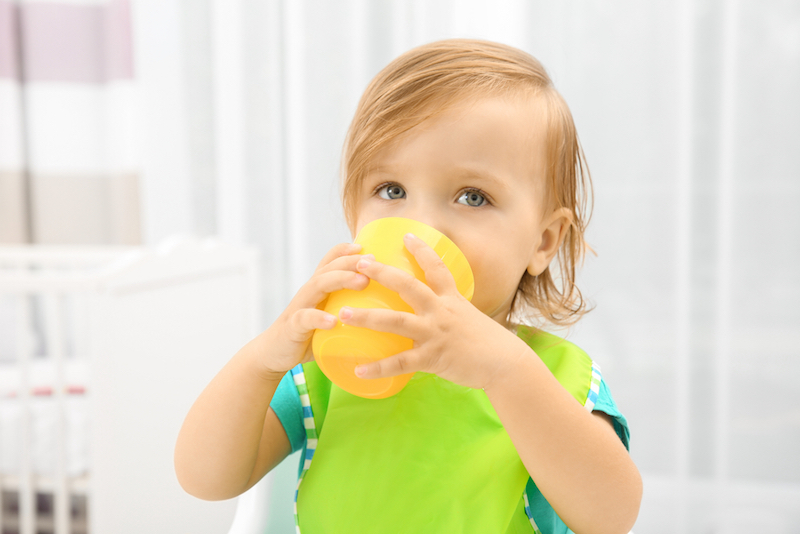Skip the Juice for Babies Under 1, Pediatricians Say

Get the world’s most fascinating discoveries delivered straight to your inbox.
You are now subscribed
Your newsletter sign-up was successful
Want to add more newsletters?

Delivered Daily
Daily Newsletter
Sign up for the latest discoveries, groundbreaking research and fascinating breakthroughs that impact you and the wider world direct to your inbox.

Once a week
Life's Little Mysteries
Feed your curiosity with an exclusive mystery every week, solved with science and delivered direct to your inbox before it's seen anywhere else.

Once a week
How It Works
Sign up to our free science & technology newsletter for your weekly fix of fascinating articles, quick quizzes, amazing images, and more

Delivered daily
Space.com Newsletter
Breaking space news, the latest updates on rocket launches, skywatching events and more!

Once a month
Watch This Space
Sign up to our monthly entertainment newsletter to keep up with all our coverage of the latest sci-fi and space movies, tv shows, games and books.

Once a week
Night Sky This Week
Discover this week's must-see night sky events, moon phases, and stunning astrophotos. Sign up for our skywatching newsletter and explore the universe with us!
Join the club
Get full access to premium articles, exclusive features and a growing list of member rewards.
Babies younger than 1 year old should not drink any fruit juice, according to a recommendation from the American Academy of Pediatrics (AAP).
In the past years, the AAP has said that children younger than 6 months old should not consume any fruit juice, and has recommended limits for older infants and children. The pediatricians group is now expanding the recommendation to avoid juice entirely to include all infants who are younger than 1. One reason behind the recommendation is that fruit juice offers no nutritional benefit for young children, according to a statement from the group, published online today (May 26) in the journal Pediatrics.
It is still fine for children older than 1 to drink fruit juice in small quantities, the group said. However, fresh fruit is a healthier alternative for older children, because it has less sugar and more fiber than juice does. Moreover, consuming too much fruit juice may cause weight gain and tooth decay, Dr. Steven Abrams, co-author of the new report and chair of pediatrics at the University of Texas at Austin, said in the statement. [10 Ways to Promote Kids' Healthy Eating Habits]
"Parents may perceive fruit juice as healthy, but it is not a good substitute for fresh fruit and just packs in more sugar and calories," said Dr. Melvin B. Heyman, co-author of the new guidelines and director of the Pediatric Inflammatory Bowel Disease Program at the University of California, San Francisco, according to the statement. "Small amounts in moderation are fine for older kids, but are absolutely unnecessary for children under 1."
Toddlers ages 1 to 3 should consume no more than 4 ounces (118 milliliters) of juice per day, according to the recommendations. Children ages 4 to 6 can consume up to 6 ounces (177 ml) per day, whereas children and teens ages 7 to 18 can consume up to 8 ounces (237 ml) of juice per day.
But parents should not give toddlers juice in bottles or "sippy cups," so as to avoid excessive exposure of kids' teeth to the sugars in juice that can cause tooth decay, the group said.
And parents should encourage kids to eat whole fruits and should teach kids about the nutritional benefits of eating fruit rather than drinking juice, the AAP recommended. For example, juice lacks the dietary fiber that whole fruit has and may contribute to weight gain. [25 Scientific Tips for Raising Happy Kids]
Get the world’s most fascinating discoveries delivered straight to your inbox.
Juice is not necessary for children of any age, the group said. Babies should be given only breast milk or infant formula, and for older children, water and low-fat or nonfat milk are sufficient, the AAP said.
Parents who do choose to give their older children small amounts of juice should read product labels to make sure that the drinks are 100 percent juice, as opposed to a juice drink or beverage that contains less than 100 percent juice, said Pamela Anderson, a registered dietitian at Cohen Children's Medical Center in New Hyde Park, New York, who was not involved in the new recommendations.
Originally published on Live Science.
 Live Science Plus
Live Science Plus











